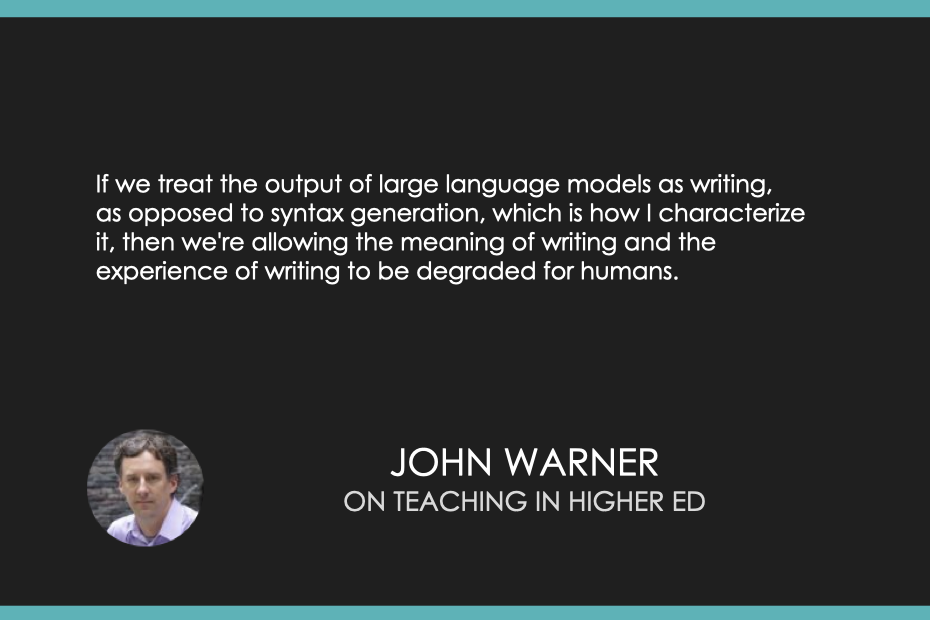
 Teaching in Higher Ed
Teaching in Higher Ed How to Think About Writing in the Age of AI
20 snips
Apr 3, 2025 John Warner, an accomplished author of several books on writing, dives into the intricacies of writing in our AI-driven world. He emphasizes the need to distinguish between human writing and AI-generated text, arguing that true expression should be preserved. Warner reflects on personal grief and its transformative power, while critiquing how AI can undermine personalized learning. With a focus on maintaining human connections amidst technological advancements, he champions the unique intelligence of individuals and the essential role of teachers in nurturing it.
AI Snips
Chapters
Books
Transcript
Episode notes
Growing Up in a Bookstore
- John Warner grew up in a bookstore started by his mother.
- He had easy access to books and developed a love for reading early on.
Bionic Writers?
- Warner uses the Six Million Dollar Man as a metaphor for the idea of humans merging with machines.
- He questions whether this "improvement" is truly beneficial for humans.
Tang and AI
- Tang, the drink of astronauts, serves as a metaphor for ChatGPT.
- Warner worries that we may mistake this "Tang" for the real "orange juice" of human writing.











